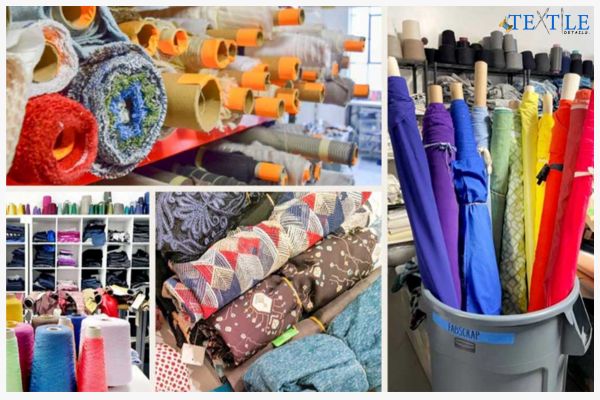Textile is one of the growing industries in the world that gives us a lot of opportunity. It is a massive industry that is not limited to a single thing. We utilize different types of textile products in our daily lives as the demand for these products is increasing day by day. However, most of us do not know what is textile or what it means.

The textile industry has a long history and has gone through many evolutions to reach its current phase. Generally, textile is a flexible and versatile material that consists of different fibers. Textiles not only refer to fabric or fiber, but they also refer to all the manufacturing processes as well as other things.
In this article, I’m going to discuss what textile is and what it means by the term “textile.” I’ll also highlight a brief history of this industry that will help you understand the evolutions of today’s textile. So, continue reading this article:
What is Textile?
The term “textile” refers to a wide range of fiber-based products, such as yarns, fibers, filaments, threads, as well as various types of fabric. There are many different types of textile fibers that can be categorized as either natural fibers or synthetic fibers.

The term textile also includes all the procedures of manufacturing fabrics. Textiles are used in a wide range of industries, from general domestic applications to specialized uses. They exhibit adaptability and ingenuity and are essential to many facets of human life.
Textile Meaning
Textiles, which means “woven fabric” in Latin, is the root of the English word “textile,” which is specifically what a textile is. However, it has expanded to encompass fabrics made in other ways. Therefore, textiles include threads, yarn, and different fabric materials created through weaving, knitting, bonding, felting, as well as tufting.
According to certain definitions, the term “textile” also refers to items made using the principle that share many characteristics with traditional fabrics.
Textile Definition
Textiles are versatile materials that are crafted through the intricate process of interlacing natural or synthetic fibers. According to Wikipedia, “Textiles are flexible and versatile materials consisting of different fibers or yarns.
The term “textile” also includes the yarns, threads, and other things used to make cloth by being woven, spun, knitted, tufted, knotted, and other methods. The textiles are adaptable and can be made into a wide range of goods, including clothes, home decor, and industrial components.
A Brief History of Textile
Textile is a massive industry that includes various distinct sectors like research, design and development, production, and distribution of different textile products. Individuals produced Fabrics and apparel for personal use in homes before the Industrial Revolution. On occasion, they were also sold again on a small basis.

The development of the flying shuttle in the year 1733, the spinning jenny in the year 1764, as well as the power loom in the year 1784, marked the beginning of the textile industry. Then, mass production of textiles and clothes started. The prosperity of the textile industry was also considerably aided by James Watt’s improved steam engine in 1775, Eli Whitney’s cotton gin in 1792, and Elias Howe’s sewing machine in 1846.
Today, every company involved in creating, producing, producing, as well as distributing textiles is a part of the global textile industry. This comprises spinning, weaving, knitting, coloring, and clothing factories. Additionally, businesses that sell laces, looms, knitting materials, buttons, zippers, sewing machines, threads, and curtain hardware are associated with this sector.
Definition Of Textile Industry
The design, manufacture, distribution, and marketing of textiles materials woven from fibers represent a large segment of the textile business. Purchasing raw materials, which are spun into yarns and then woven or knitted into garments, is the first step in this sector. The products made from these fabrics include clothes, home furnishings, as well as industrial materials.

The sector, which includes a variety of skills and processes like spinning, weaving, dyeing, finishing, and clothing production, is an essential part of the worldwide economy. Additionally, it significantly contributes to the global provision of work opportunities.
The FAQs
Are textiles and fabric the same?
No! Fabrics are not the same as textiles. Fabric is a form of textile manufactured by weaving or knitting fibers together. Textiles are any material composed of interlacing fibers. Although all textiles are fabrics, some textiles, such as felt and lace, are not always fabrics.
What are Textile Products?
Products classified as textiles typically comprise a minimum of 80% by weight of fibers. These include technical textiles, home textiles, and clothes, as well as different accessories for pleasure.
What are Textiles Made of?
In general, textile materials are made of fibers, also referred to as yarn, thread, or even filaments. Textile fibers are available in 2 primary categories: natural fiber and synthetic or man-made fiber.
How are textiles made?
The transformation of fiber into yarn and then yarn into fabric is the foundation of textile manufacturing. The fabric is then colored or printed, made into cloth, then utilized to make numerous industrial products, domestic goods, clothing, as well as upholstery.

Monjurul Hasan, An On-Page SEO Expert on WordPress. Study in Automobile & Textile Engineering at Bangladesh Sweden Polytechnic Institute (BSPI). Having 3+ years of experience in Automobile and Technical Textile Products. Working at Upwork & Fiverr MarketPlace . Highly interested in technical product development and fashion forecasting.
